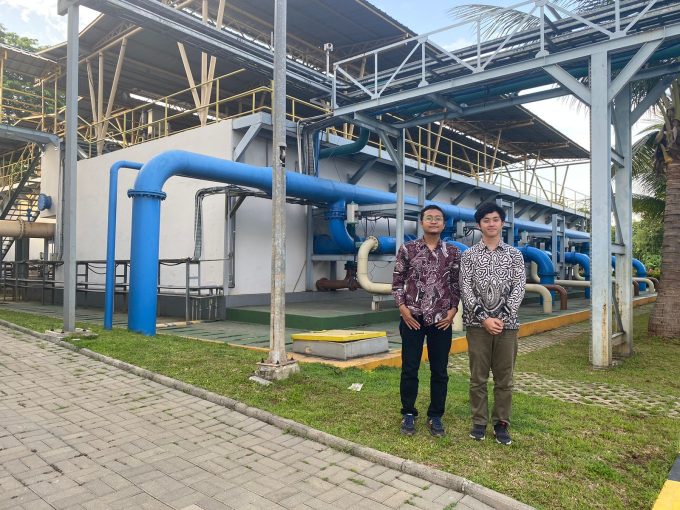
Cokorda Keigoputra Pemayun (2021) (Keigo) and Chandra Rizqullah Triananda (2021) (Chandra) conducted their Field Work (KL) activities at PT MOYA Tangerang, a subsidiary of PT MOYA Indonesia, which is one of the largest private companies in clean water processing in Indonesia. The KL activities took place from December 27, 2023, to January 26, 2024. During the first week, the students were introduced to the company in general and learned simple water sample analysis methods. Keigo and Chandra used this time to understand the company’s situation and culture. In the following weeks, there were daily analysis activities, networking, processes, biweekly tasks, and data verification with PDAM as a cooperative partner. The third and fourth weeks were the busiest times during the KL implementation, due to water processing projects involving nanobubble and ozone equipment. They found the working atmosphere at PT MOYA Tangerang very comfortable because they were given the opportunity to participate directly in several projects, and the laboratory infrastructure facilities were excellent.
The entire series of KL activities was very beneficial for the students. The knowledge gained was not only about microbiology but also included important learning related to physics (engineering) and chemistry in clean water processing. This experience made the students realize the importance of direct work experience in the agricultural and environmental fields because it provides new knowledge and perspectives regarding industries in agriculture and the environment, apart from what they learn on campus. According to Keigo and Chandra, they gained a lot of new knowledge, especially regarding aquatic industrial microbiological analysis approaches using methods such as the quanti-tray method and colilert-18 for E. coli and total coliform analysis. The difficulties they faced during the KL included understanding subjects outside of microbiology and adapting to the working methods of employees. However, these difficulties were overcome not only through internal factors such as self-adaptation but also with direct assistance and support from the company. The impression they obtained during the KL at PT MOYA was that it was very beneficial as a form of self-introduction to the actual work environment because the knowledge learned on campus is not always fully applied in the workplace. Additionally, they had many exciting learning experiences, such as encountering new cases related to water quality and new technologies applied to address them.
This synergy is a strong evidence to achieve the goal of SDG 4: Quality Education, SDG 9: Industry, Innovation, and Infrastructure, and SDG 17: Partnerships for the Goals.
